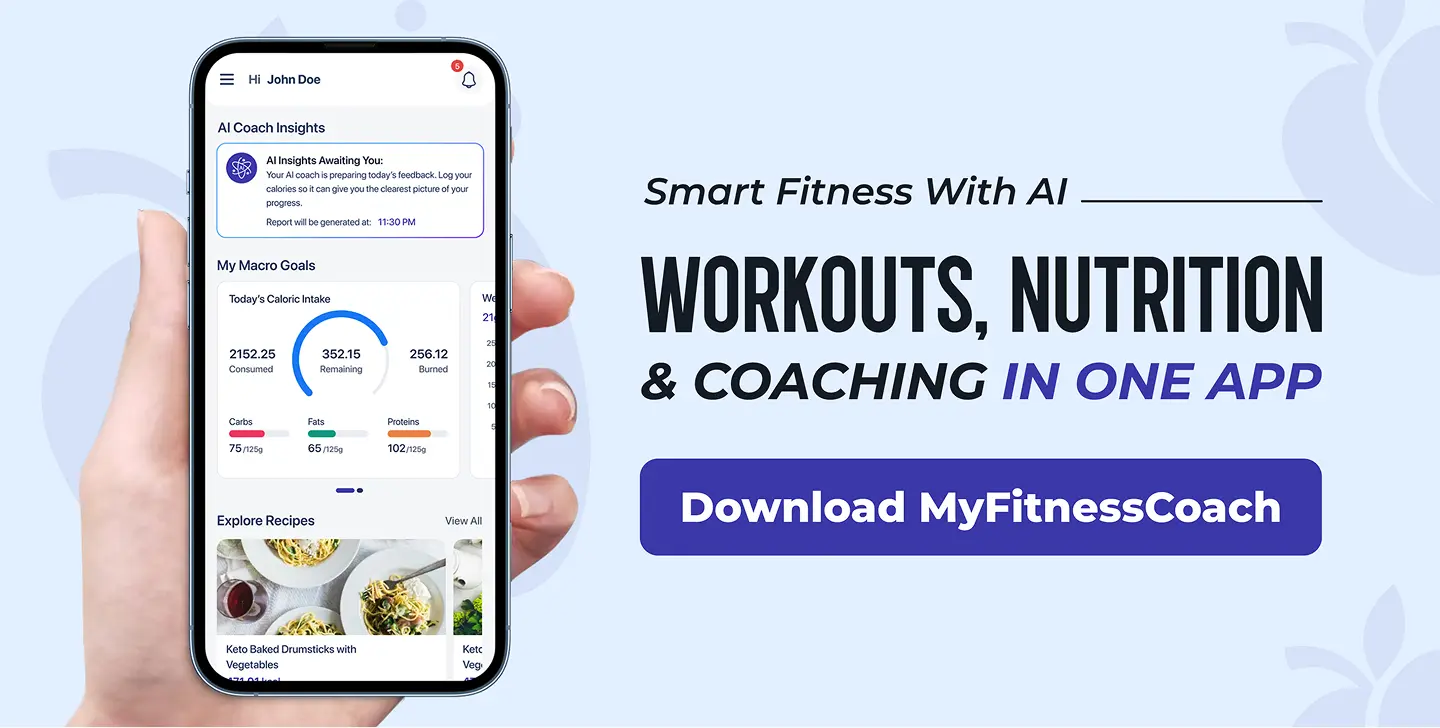Discover the Ultimate Guide to Whole 30 Diet | MFC Guide

MyFitnessCoach
April 23, 2024
The Whole30 diet has gained significant popularity in recent years. Many people have turned to this dietary approach as a means to improve their health, lose weight, and reset their eating habits. In this article, we'll explore what the Whole30 diet is, how it works, its potential benefits and drawbacks, and whether it's right for you.
How Does the Whole30 Diet Work?
The Whole30 diet is relatively simple in concept but can be challenging to follow. During the 30-day period, you're required to eliminate several food groups:
- Added Sugar: This includes all forms of added sugar, including natural sweeteners like honey, maple syrup, and artificial sweeteners.
- Alcohol: No alcohol, even for cooking.
- Grains: All grains, including wheat, rice, barley, oats, corn, and quinoa, are off-limits.
- Legumes: This includes beans, lentils, chickpeas, peanuts, and soy.
- Dairy: All forms of dairy, including milk, cheese, yogurt, and butter.
- Processed Foods: Avoid any food that containsb carrageenan, MSG, or sulfites.
- Junk Food: Even if the ingredients are technically compliant, you should avoid recreating junk food or treats with "approved" ingredients.
The focus is on consuming whole foods, such as vegetables, fruit, meat, seafood, nuts, and seeds. These foods are believed to support overall health and well-being.
What Can You Eat on the Whole30 Diet?
While the list of restricted foods may seem intimidating, there are still plenty of delicious and nutritious foods you can enjoy on the Whole30 diet:
- Vegetables: Load up on all kinds of vegetables, both fresh and frozen.
- Fruit: Enjoy a variety of fruits, but be mindful of portion sizes.
- Meat and Poultry: Opt for unprocessed meats and poultry, such as beef, chicken, turkey, pork, and lamb.
- Seafood: Fish and shellfish are excellent protein sources allowed on the Whole30 diet.
- Eggs: Eggs are a versatile and nutritious choice.
- Nuts and Seeds: Almonds, cashews, walnuts, pumpkin seeds, and chia seeds are all great options.
- Healthy Fats: Include fats from avocados, olives, coconut, and oils such as olive oil and coconut oil.
- Herbs, Spices, and Seasonings: Get creative with your meals using a variety of herbs, spices, and seasonings.
Benefits of the Whole30 Diet
Whole30 diet plan offers numerous benefits that any individual can enjoy. Some of them are:
Identifying Food Sensitivities
By eliminating potentially problematic foods and then gradually reintroducing them, you can identify any food sensitivities or allergies you may have.
Weight Loss
Many people experience weight loss during the 30-day program, primarily due to the elimination of processed foods and added sugars.
Improved Energy Levels
Some participants report increased energy levels and improved mood after completing the Whole30 program.
Healthier Eating Habits
The Whole30 diet encourages the consumption of whole, unprocessed foods, which can lead to healthier eating habits in the long term.
Drawbacks of the Whole30 Diet
Although whole30 diet has many benefits but there are some challenges associated with this plan as well.
Restrictive
The Whole30 diet can be highly restrictive, making it challenging to follow for some people.
Time-Consuming
Following the Whole30 diet requires careful meal planning, shopping, and food preparation.
Social Limitations
It can be challenging to adhere to the diet in social situations or when eating out.
Lack of Long-Term Guidance
While the 30-day program is structured, some people struggle to maintain healthy eating habits once the program is completed.
Is the Whole30 Diet Right for You?
Whether or not the Whole30 diet is right for you depends on your individual health goals, lifestyle, and relationship with food. Before starting any new diet, it's essential to consult with a healthcare professional, especially if you have any underlying health conditions.
The Whole30 diet can be an effective way to reset your eating habits, identify food sensitivities, and jumpstart weight loss. However, it's not necessarily a long-term solution for everyone. Some people may find it too restrictive or difficult to maintain over time.
If you're considering trying the Whole30 diet, here are a few tips to help you succeed:
Plan Ahead
Take the time to plan your meals and snacks for the week ahead. Having a plan in place will help you stay on track.
Focus on Whole Foods
Emphasize whole, unprocessed foods, such as vegetables, fruits, lean proteins, and healthy fats.
Read Labels
Be diligent about reading food labels to ensure that the foods you're consuming are compliant with the program.
Stay Hydrated
Drink plenty of water throughout the day to stay hydrated.
Listen to Your Body
Pay attention to how your body responds to different foods and adjust your diet accordingly.
In conclusion, the Whole30 diet can be an effective way to reset your eating habits and identify food sensitivities. However, it may not be suitable for everyone, and it's essential to approach it with careful consideration and planning. As with any dietary program, it's crucial to listen to your body and consult with a healthcare professional before making any significant changes to your diet.

Ready to jumpstart your journey to a healthier you? Start your Whole30 transformation today with MyFitnessCoach! Let us guide you through the 30-day program, helping you identify food sensitivities, lose weight, and boost your energy levels. Take the first step towards a healthier lifestyle and download MyFitnessCoach now.
Frequently Asked Questions
Similar Articles
Stay informed with these similar articles.

MyFitnessCoach
October 18, 2023
What Does Body Goals Mean? A Path to a Healthy Lifestyle
In the world we live in now, lots of people talk about "body goals," which means having a body that's seen as perfect. On social media, in magazines, and on TV, we see lots of pictures of people with what seems like perfect bodies, which makes us feel like we have to look like them. But the real meaning of "body goals" is more than just looking good. It's about taking care of your whole self, not just how you look. In this article, we will discuss what does body goals actually mean and how you can achieve your body goals. Let’s get started:
.webp&w=3840&q=75)
MyFitnessCoach
September 5, 2023
How Much Protein in an Egg | The Nutritional Power
Eggs have long been a breakfast favorite for many, and for good reason. They're not only delicious but also packed with essential nutrients, making them a versatile and nutritious addition to your diet. One of the most common questions about eggs is, "How much protein is in an egg?" In this comprehensive guide, we'll delve into the world of eggs and explore their protein content, nutritional benefits, and how they can contribute to a balanced diet.

MyFitnessCoach
May 18, 2023
Fitness Guide: How Do I Start A Weight Loss Journey
Ready to start on a life-changing weight-loss journey? Congratulations for taking the first step towards being a better and happier version of yourself! Starting off a weight-loss journey may be both satisfying and stressful. With so much information available, having a well-defined plan and trusted assistance in achieving your goals is important. This article will help you start your weight-loss journey and achieve the results you desire.
